Grief Counseling Services: Grief Therapy in California
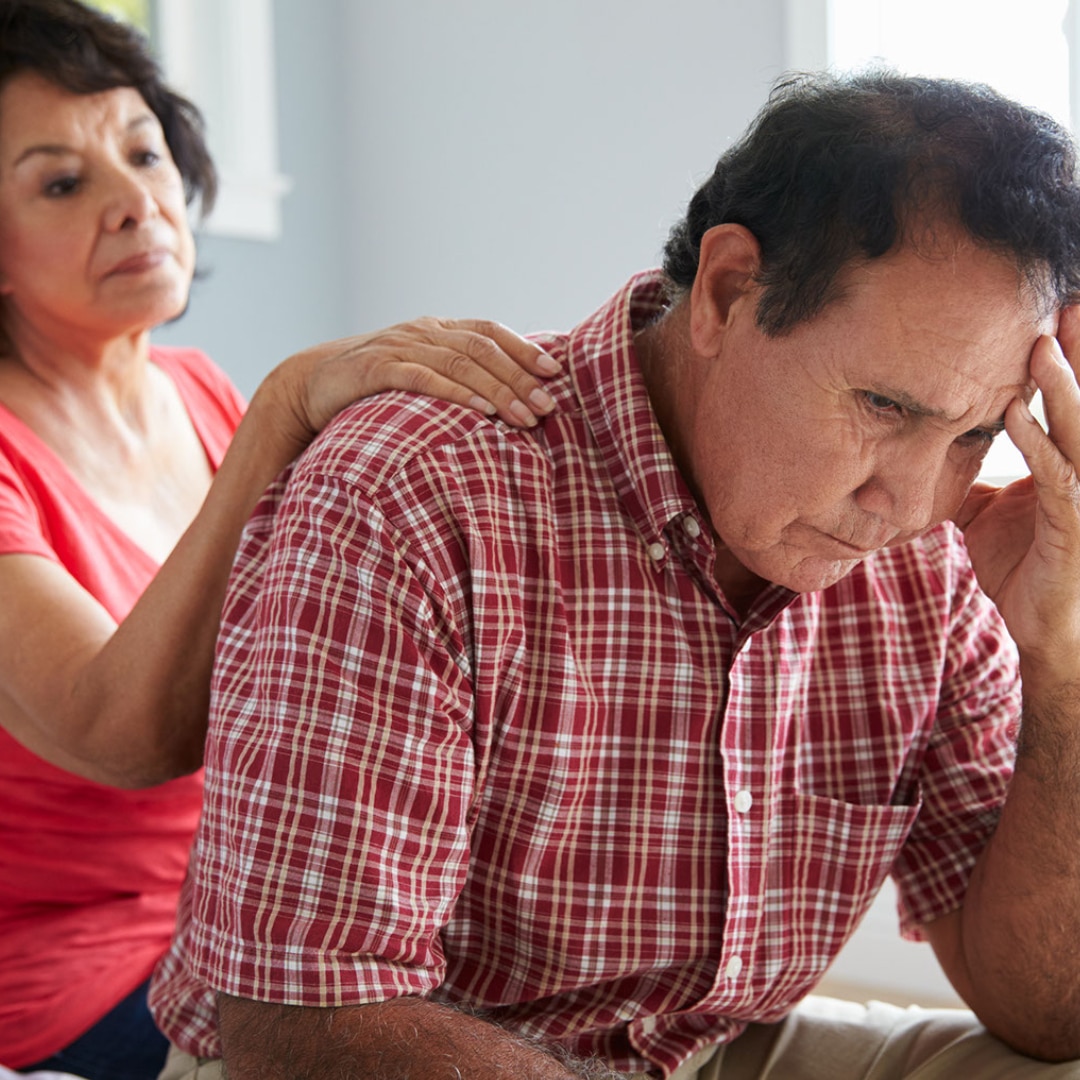
An online grief counselor can offer you therapeutic support to help you through your bereavement.
When a loved one dies, the grieving process can be intense and overwhelming. Nothing seems to be helping. Real grieving is nothing like the media portrays it in movies and television. It's not something you chat about with a friend, and suddenly everything is better. It takes much more than a few simple chats to get through the bereavement process. Grieving requires a special kind of support. It often requires the services of a licensed mental health professional. A trained psychotherapist can support you differently than peers, family or friends.
Online grief counseling, also known as teletherapy or telemental health can help you cope with your devastating loss. Even though grieving is a natural response to a significant loss, it can be tough to get through it without support. Grief therapy in California can help. A mental health professional can support you as you process thoughts and feelings and come to a place of peace.
When you suffer a loss, it hurts. Your emotional response to the pain shows that your loss was meaningful in your life. The pain you experience with loss can naturally fade over time. However, there are times when a significant loss can leave you feeling lost, alone, empty, or unable to function. Being in this state can keep you from your responsibilities and living the life you want.
Dealing with your loss can be a complicated process. It can impact your well-being on many levels, including emotional, physical, social, financial, and functional. Grief therapy in California can help you take a look at every aspect that impacts you. Every loss is different. Some take longer to process than others before you get back to the balance of living your life without intense stress and sadness.
Grief therapy is a specialized type of therapy designed to help you cope with your loss. It can be highly beneficial when you're struggling to cope with the death of a loved one. Therapeutic support aims to help you understand your thoughts and emotions and live a fulfilling life.
Working virtually with an online grief counselor makes it easier to access support and get the professional services you need. You don't have to leave your home to meet with a therapist on a virtual platform. You can benefit by connecting with a qualified mental health professional with just one click. All you need is a good internet connection and a reliable device for support from a virtual counselor. You can also access professional support by phone.
Teletherapy is convenient and confidential. It has also been proven to be just as effective as meeting with a therapist or counselor in person. The added confidentiality from meeting with a mental health professional virtually makes psychotherapy a viable option if you're worried about stigma or privacy.
Whith online grief counseling, nobody will see you coming or going from sessions or accidentally bump into you in a mental health waiting room. You can connect with your therapist without leaving the house with internet access. Virtual psychotherapy will protect your anonymity.
Many clients prefer the anonymity of working with a therapist or counselor who lives outside their community. It can be easier to be open and honest without fear of judgment or gossip. A counselor or therapist located away from your home or workplace can add an extra layer of distance and impartiality to the therapeutic relationship. There is no chance of seeing your therapist in public, in a social situation, or finding out that someone you know also knows your therapist. Virtual psychotherapy may be a good way for you to get support from a trained psychotherapist.
Your therapist will create a safe virtual environment to support and guide you through your feelings. Your video therapy session will provide you with an extra layer of privacy. You have more control with virtual sessions.
You choose where your session takes place. Anywhere you are comfortable and have privacy is acceptable. It is easier to fit therapy into your busy schedule when you meet online. Death is a delicate subject, and you need to feel comfortable to get the most out of your session.
Start Working Through The Pain of Your Loss
Grieving isn't something anyone wants to do. It is a complex process, and everyone wants to know when it will be over. You may find yourself surrounded by people who have no idea how deep your pain goes. Being with people who don't understand can make you feel more isolated and alone when you need extra support.
People give you advice from every direction, and you just feel lost. You don't know what to do and what they say is more overwhelming than useful. You know they are all trying to be helpful, but they are uncomfortable and don't know what to say. They just want you to be okay.
Your partner is especially concerned about you. They want to support you, but they are suffering too and want this to all be in the past. They may be on the same page, but grieving is different for everyone. You are both on a different path. It is difficult for you to watch each other suffer. You wonder if it will help you to cry more or less. Nothing seems to be moving you forward.
Your friends may call you and invite you to do things to get you out of the house. They are concerned that you seem withdrawn and want to cheer you up. They want to get back to life before you're ready.
Your extended family keeps encouraging you to move on with your life. They don't know how to help you any better than anyone else. They ask what they can do and what you need, but you have no idea what will help or what you need from them. It is a sad and frustrating time for everyone.
Most people don't understand what you're going through. Despite not knowing what you're really feeling and what you need, everyone has an opinion. They tell you how you should be grieving. They offer you what they think are soothing words like, "At least they're in a better place. The suffering is over." These well-meaning sentiments can cut deep and make you feel worse, but you know they are saying these things with kindness and sympathy. Some tell you to stop crying and move on, while others say to cry more and get it out so you can get back to your life. You wish all the advice would actually help, but it doesn't.
Work keeps calling, wondering when you'll be back. You don't feel ready, but entertain thoughts that it might be good for you to have a distraction. Maybe returning to work could be a vacation from the suffering for part of the day. However, you know you aren't at your best. You're having trouble concentrating and remembering things at home. It can be challenging to remember to eat.
You don't feel like yourself. The whole world looks different. You need time to adjust. Grieving is awful on its own, but the responsibilities of life keep coming at you. The world doesn't stop when you suffer a loss. Keeping up with your responsibilities and relationships can seem impossible.
I provide grief therapy in California to support you as you grieve at your own pace. You will never be forded to think or do anything that doesn't fit who you are and where you are in your grief process. Therapy is a safe place to be yourself without judgement and be supported unconditionally.
Life keeps going on around you.
The world doesn't stop to give you time. Everyone around you keeps doing what they do. After a while, everyone seems to forget about your loss. Friends stop mentioning it and go back to normal. For you, everything has changed. You are still adjusting to life without the person you still love so deeply. You don't have a normal to return to because nothing seems the same.
You know you still have a life to live. There's so much life ahead that you get overwhelmed if you think about it. It's a stretch to think you can do it. Everything you had planned for your future is different now. What you expected is gone, and it's difficult to imagine anything else.
Grieving and Living
Grieving is difficult. Your life has suddenly changed and will never be the same again. You see life differently. You're trying to find a balance between your responsibilities and taking care of yourself while you adjust. Sometimes, just getting through the day is all you can handle.
Grieving while finding your life balance is a delicate process. Work, family, and friendships can seem like too much when you feel lost in a fog. With your heart filled with sadness and pain, it's difficult to function. Your thoughts flood your day with memories, ideas, and sadness. You may wonder if you will ever be able to think clearly again. You may doubt that there is any happiness in your future.
I can support you through your grieving process. I understand what it's like to suffer a significant loss. I've been there too. I have experienced the depths of grieving from losing close family members and loved ones in close succession. I've been through the difficulties and challenges of getting my life back to a balanced state and living with my memories. I made it through times that I felt were impossible to manage at the time and came through the other side. I have learned to live my life despite my losses.
No matter where you are in your grieving process, I will meet you there and support you through whatever comes up along the way. We will talk about whatever is most important to you in the moment. I will be there for you as you work through the pain of your loss. Together, we can find ways for you to be more resilient. You can grow and change as you go through this transitional time. You may not be able to see possibilities now. That's okay. It's okay to cry. It's okay to take two steps forward and four steps back.
Grieving isn't a linear process. It's essential to nurture yourself and not judge your process. The main goal is to ease your suffering at this vulnerable time. I will support you and help you grow as you heal from your loss. I will help you find ways to cope, increase your resilience and live your life on your terms. You can have a life after loss.
Grief therapy in California can help with different types of loss:
- Death of a loved one
- Anticipating the death of a loved one
- Understanding and coping with losses that come with chronic illness
- Living through the decline of terminal illness
- Putting your life together after divorce
- Dealing with job loss and planning for your future
- Other Experiencing life-changing losses such as financial loss or losing your home to a disaster
My job is to help you find balance and hope for the future. Together we'll explore your thoughts, experiences, strengths, and ideas. As your hope grows and you feel like you are on solid ground, I'll support you as you move forward with your plans. There are happier days ahead. As you regain your life balance and learn from your experiences, with grief therapy in California you can blossom into the best version of yourself.


How is online grief counseling different from face-to-face grief counseling?
The short answer is, not much. Studies have shown the outcomes for both are the same. One does not offer a therapeutic benefit over the other. Both are considered live, real-time sessions. The most significant difference is that in online counseling, services are virtual using video technology. Traditional in-person sessions require you to travel to an office to receive psychotherapy services. Therapists for grief in California and be difficult to find. Searching for an online grief counselor in California can help you find a qualified mental health professional.
What is it like to do online grief counseling?
When talking to friends and family isn't enough, seeking help from a professional therapist or counselor could be your best option. If you're struggling with intense emotions such as sadness, anger, and guilt, a counselor or therapist can offer support and help you sort things through. If you've never experienced therapy, it may be a bit strange at first talking to someone you don't know about something so personal. However, many people find it freeing to talk to someone who has no reason to manipulate them or try to convince them they're wrong. You don't have to be so careful to choose your words for fear of being misunderstood. Talking to a counselor or therapist is very welcoming and non-judgemental.
Grief therapy in California online is very similar to traditional in-person counseling. The main difference is that your meetings take place over the internet, usually through video conferencing software. Teletherapy is a convenient option if you live far away from a counselor or have difficulty getting to appointments due to work or childcare commitments. Another benefit of teletherapy is that it allows you to connect with a counselor from anywhere in the state for a wider selection. Therapists for grief in California online that are located outside your city may be more likely to have openings.
What is online counseling?
Counseling is a process that helps people deal with their problems. You can choose to do it in person or online. It really doesn't matter if your therapist or counselor is in the same room with you or not. The services remain the same. You communicate with your therapist in the same way in both situations. The discussion will be the same in a virtual environment as in-person. Many clients find the virtual option saves them time, gas money, and the frustration of dealing with traffic and parking. Your online counselor can meet your needs and help you find ways to cope that fit with who you are.
What is online grief counseling?
There is no single right way to cope with loss. It can be difficult to get through it alone. You can't just program your recovery, flip a switch and be finished. Grieving is a process. Resources and support are necessary to make progress. Online counseling is known for helping people through difficult times. Working with a trained therapist or counselor can help you progress through your grieving process.
You can find comfort and healing with an online therapist to help you through. You can work through your feelings of sadness, anger, and confusion in a safe, supportive, and private environment. The therapeutic discussion will only cover subjects in your comfort zone unless you explicitly ask to go somewhere deeper. Your counselor or therapist will never push you beyond your comfort zone. They will go at your pace. Grieving can be complicated and requires time to come to a comfortable place.
Responses to loss can show up in many ways, including physical symptoms like nausea, headaches, and sleeplessness, or emotional symptoms like sadness, depression, and anxiety. There is no right or wrong way to grieve. Working with a trained mental health professional during your sessions can help you find the right way for you to process your loss.
Grief therapy is not about "moving on with your life "or getting over it." The therapy process is about learning to be you and live your life without your loved one physically present. Your recovery is about finding peace and comfort and how you want to live and remember the person you lost. You can honor them and have your thoughts and feelings. Therapy can help you deal with your difficult emotions in a healthy way and find your way back to your life. Therapists for grief in California can help you find peace and remember your loved one in a way that serves you best.
Grief is a unique experience.
Everyone experiences grief at some point. It is a natural response to loss. The emotional pain we feel when we lose someone or something important to us is part of the grieving process. Some people experience more intense emotions than others. Everyone has their own personal path to recovery.
There are no rules to follow. We all go through loss at different times in our lives. Experiences of loss tend to become more common as we get older. Coping with loss never seems to get easier, no matter how many times you experience it.
Every grieving experience is different. It is impossible to say how anyone will process their emotional pain. Your life is unique, as is the relationship you have with the person who has died. Grieving can not be put into a tidy package with a bow on top. Your experience will be as unique as you are. You might notice that your friends and family are grieving differently than you. Your sessions will address your personal concerns and worries to put your mind at ease. You need your own personalized way of grieving.
What may work for someone else may be completely ineffective for you. Never let anyone tell you how you should grieve. I will consider what you are experiencing and address your unique needs. Your therapy process will change as you go through your different stages of grieving. As you progress, you will formulate a specialized approach that works for you.

Grief counseling can support you and help you feel less alone.
Experiencing loss
Death is perhaps the most profound type of loss. It is a physical and emotional separation that can leave a gaping hole in your life. Grieving for a lost loved one can be an emotional process that involves the entire family. The bereaved may experience depression, fear, and anxiety. Each family member can have a different response. Family grief counseling can help everyone grieve together, accept their differences, and create a healthy support network. Finding a therapists for grief in California can help everyone process their grief so the family support each other and heal.
Grieving can take many different forms, depending on you and your relationship with the person who has died. Some people feel an overwhelming sense of sadness, while others may feel numb or disconnected from their emotions. Some people withdraw from friends and family, while others become more outgoing. Some people want to talk about their loss constantly, while others may go to the other extreme and never mention the deceased again. There is a broad spectrum of reactions to loss.
Common symptoms of grieving include sadness, anger, loneliness, fear, guilt, confusion, organization problems, distancing, and disbelief. It is normal for these symptoms to come and go over time, but if they persist for more than six months, it may indicate prolonged grief or clinical depression. Grieving can also have a physical effect on your body. It can cause fatigue, headaches, cognitive issues, lack of motivation, and changes in appetite.
Bereavement can be very isolating. Experiencing the loss of someone you love can really shake up your life. You may feel like you're the only one hurting this much. You might feel like nothing is helping.
Know that you are not alone as you grieve. Some people do understand. Many others are going through their own process, and many more have been through the grieving process and have some understanding of what you're feeling.
Grieving is an integral part of the healing process. It can help you learn about yourself as you move through this difficult time. You can rebuild or shift your concept of who you are and who you want to be. Your grieving experience does not have to be always negative or painful. Grief ebbs and flows as you move through it.
There may be times that your grief will fade to the background just enough for you to manage to smile for a moment. Fading grief is normal. It might happen more and more for you as you process. For some, the grieving process is gradual, while others can experience a sudden shift one day.
How you lost your loved one and their age can impact your grieving process. Sudden loss from an accident or suicide can bring up different thoughts and feelings than losing someone slowly to an illness like cancer. The loss of a child or infant is unique and devastating. The loss of a parent can shake your foundation. Losing an older adult is different experience.
Types of Loss
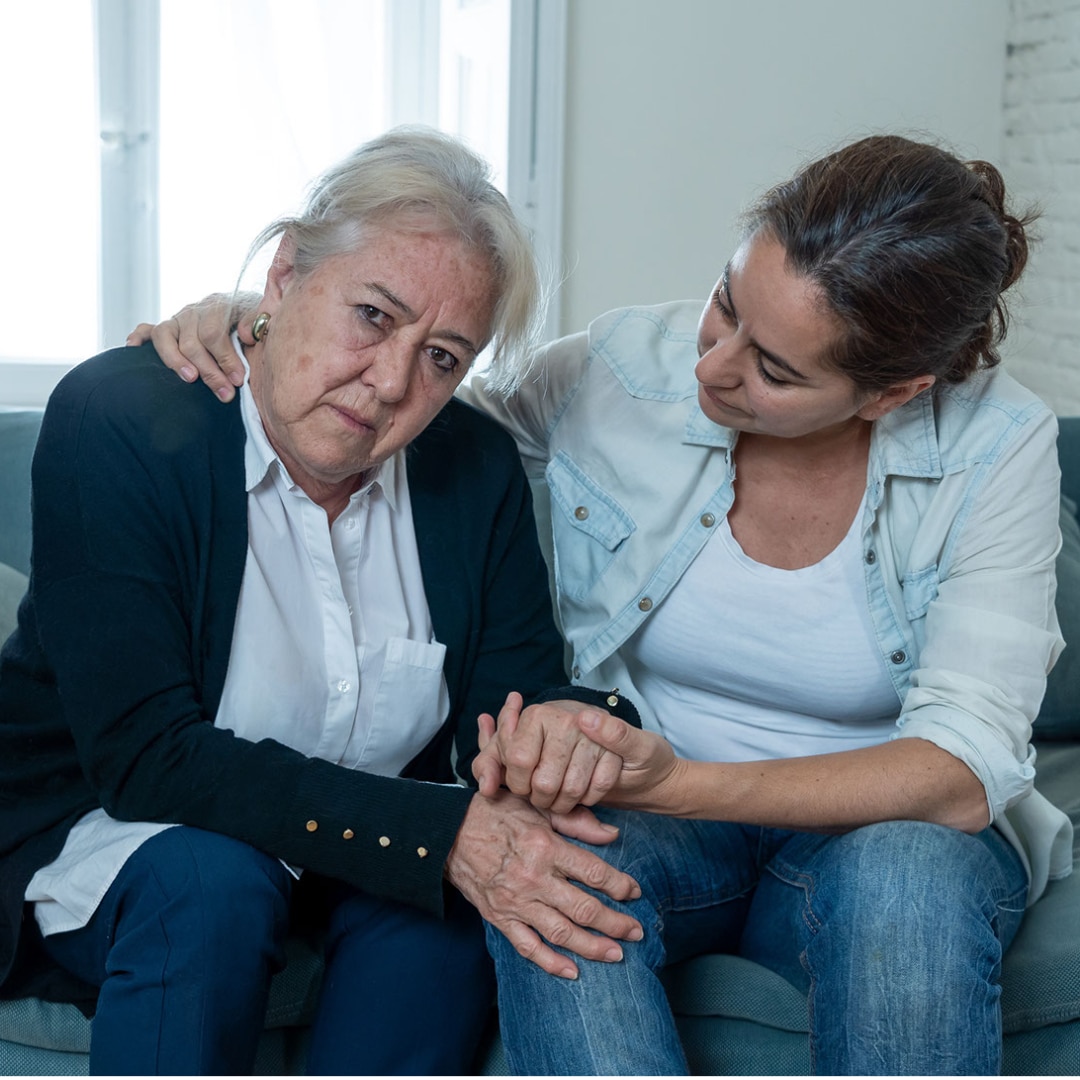
Working with a grief counselor online can help you find some peace after the death of a spouse or partner.
Losing a spouse or partner
No one can ever prepare you for the day that you lose your spouse or partner. The pain and emptiness you feel can be unlike anything you have ever experienced. The first few weeks and months may seem like a blur trying to cope with overwhelming emotions. There are no words to describe the hole left in your heart when the person you chose to spend your life with dies.
You feel like a part of you has died along with them. Life feels meaningless without them. Therapists for grief in California provide support services to help you get through the big change in your life in a way that feels healthy for you.
Eventually, you learn to cope with your loss and begin to rebuild your life. There is no proper timetable and no right or wrong way to do this- it is different for everyone. You will never stop missing them, but you can learn to live again. Waves of grief can come anytime. Therapy can help you find suitable ways of coping and riding the waves.
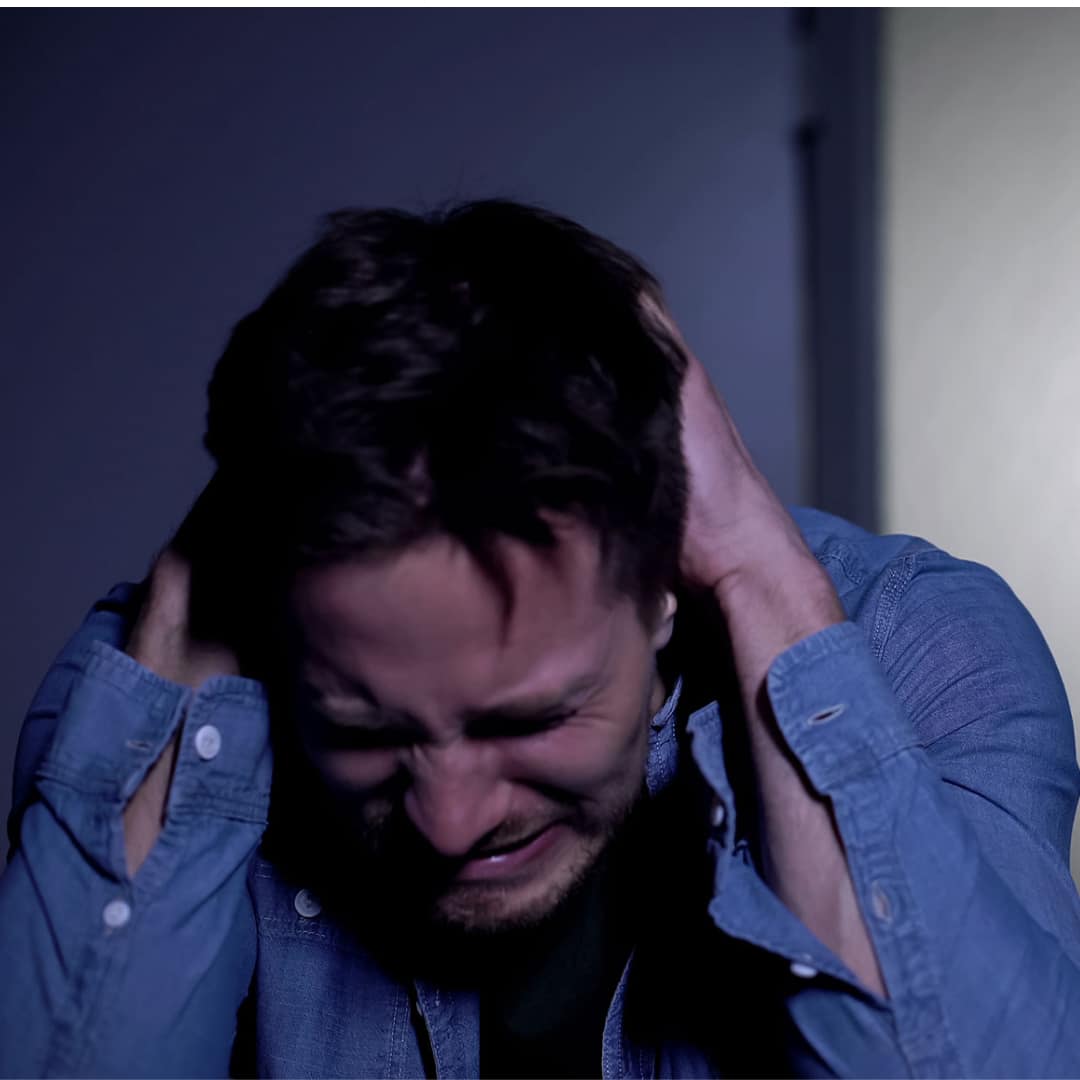
An online grief therapist can support you through sudden loss.
Sudden loss from an accident
When a sudden and unexpected death occurs, it can be challenging to cope with the reality of the situation. It's traumatic and shocking. Your grief can be overwhelming, and it is often hard to know where to turn for help. You may find yourself angry and questioning why. It can be hard to believe it really happened. Finding therapists for grief in California to choose from is the first step to coping.

Grief therapy can support you through the complicated thoughts and feelings of sudden suicide loss.
Losing a loved one by suicide
Suicide is the 13th leading cause of death in the United States. About one in every four deaths in the U.S. is from suicide. Suicide rates have been increasing for several years, and experts are unsure why this is happening. There are many potential reasons, but some believe that there may be a link between suicide and mental health disorders, such as depression and anxiety.
Losing a loved one by suicide is horrible and brings up a mixed bag of thoughts and feelings. You may be angry they choose to leave you. You could blame yourself for not knowing or not being there to stop them. So many thoughts go round and round in your head, combing through every situation and conversation, looking for clues you missed. You didn't miss anything. People who choose suicide will find a way no matter what you do or say. Knowing this doesn't make losing them any easier, but it isn't your fault.
I provide grief therapy in California for suicide loss. Together we can help you find healthy ways to cope and heal.

Grief counseling online can support you through the process of losing a loved one to a chronic illness, degenerative disease, or cancer.
Losing a loved one to chronic illness, degenerative diseases, or cancer
When someone you love is diagnosed with a chronic illness, degenerative disease, or cancer, it feels like your world has been turned upside down. A terminal illness makes it hard to come to grips with the reality that they are slowly slipping away. You are suddenly faced with the reality your loved one may not be around for much longer. Watching them suffer and knowing that you can do nothing to stop it is another kind of loss. It is a time of great sadness and heartache as you say goodbye to the person you love.
You worry about them constantly and wonder how you'll cope when they are gone. It is an incredibly difficult time, and there is no right or wrong way to deal with it. You may find comfort in talking about what you're going through. Dealing with the idea of loss is a personal thing.
It's a difficult time, so don't be afraid to ask for help when you need it. Online grief counseling can help you fit support into your life while spending as much time as possible with your loved one. Participating in grief therapy in California can help you get through each phase of grief.

An online grief counselor can help you heal the heartbreak of miscarriage and pregnancy loss.
Miscarriage and Pregnancy loss
Heartbreak. It's a word that can describe so many things, but it's the first word that comes to mind with pregnancy loss. If you have experienced it, you know the pain is unlike anything else. You want to be free from the pain, but it catches you by the heartstrings and leaves you wondering how you'll ever cope with such a devastating loss. You want to be looking forward to holding an infant again. You are grieving a lifetime of love and connection, not just a single point in time.
It can be difficult to grieve when those around you don't understand the depth of your loss. You need space to process away from people saying things like, "you can always try again" or "there's time to keep trying. You'll have the baby you want." These things are hard to hear when you're experiencing intense emotions. It's not a helpful message. Your experiences are valid. Even a loss early in pregnancy can be devastating. You may experience:
• Great sadness and heavy grief
• Shock
• Guilt
• Blaming yourself
• Exhaustion
• Lack of motivation
• Difficulty sleeping
• Physical pain
• Health concerns
• Emotional distress
• Difficulty coping
• Depression
• Anxiety
• Difficulty being around babies, children, or someone who's pregnant
• Persistent thoughts of your due date
• Feeling pressured to "try again" before you're ready
Miscarriage is a common complication of early pregnancy, occurring in about 15-20% of recognized pregnancies. Many women who miscarry experience no symptoms or warning signs.
If you have experienced a miscarriage or pregnancy loss, you are not alone in your grieving. Professional help is available. Virtual grief therapy in California can provide you support with a qualified therapist who understands the depth of your pain.

A grief counselor can help you process the difficult grief from the loss of a child.
Losing a child
The pain of losing a child is indescribable. It feels like a physical and emotional wound that never heals. It can be challenging to do anything. Life just stops. You never know when you will have grief attacks. Sometimes they happen daily.
Time does not seem to make it any easier. Friends offer support, but they often don't know what to say. Support from family, friends, and co-workers can only go so far before they start thinking you should be better than you are by now. They might be sending the message that it's time to be getting on with life before you're ready. Grieving has its own timetable. It doesn't wait for a suitable time.
Grief comes in waves and at unexpected moments. There are a variety of triggers that can bring it on. You can take a break to process or grieve anytime. There is no right or wrong way to mourn the death of your child. You may need to talk about your child a lot sometimes and not feel like sharing at all at other times. It's crucial to find a way to mourn that works for you. Working with a psychotherapist can help you find what feels right to you.
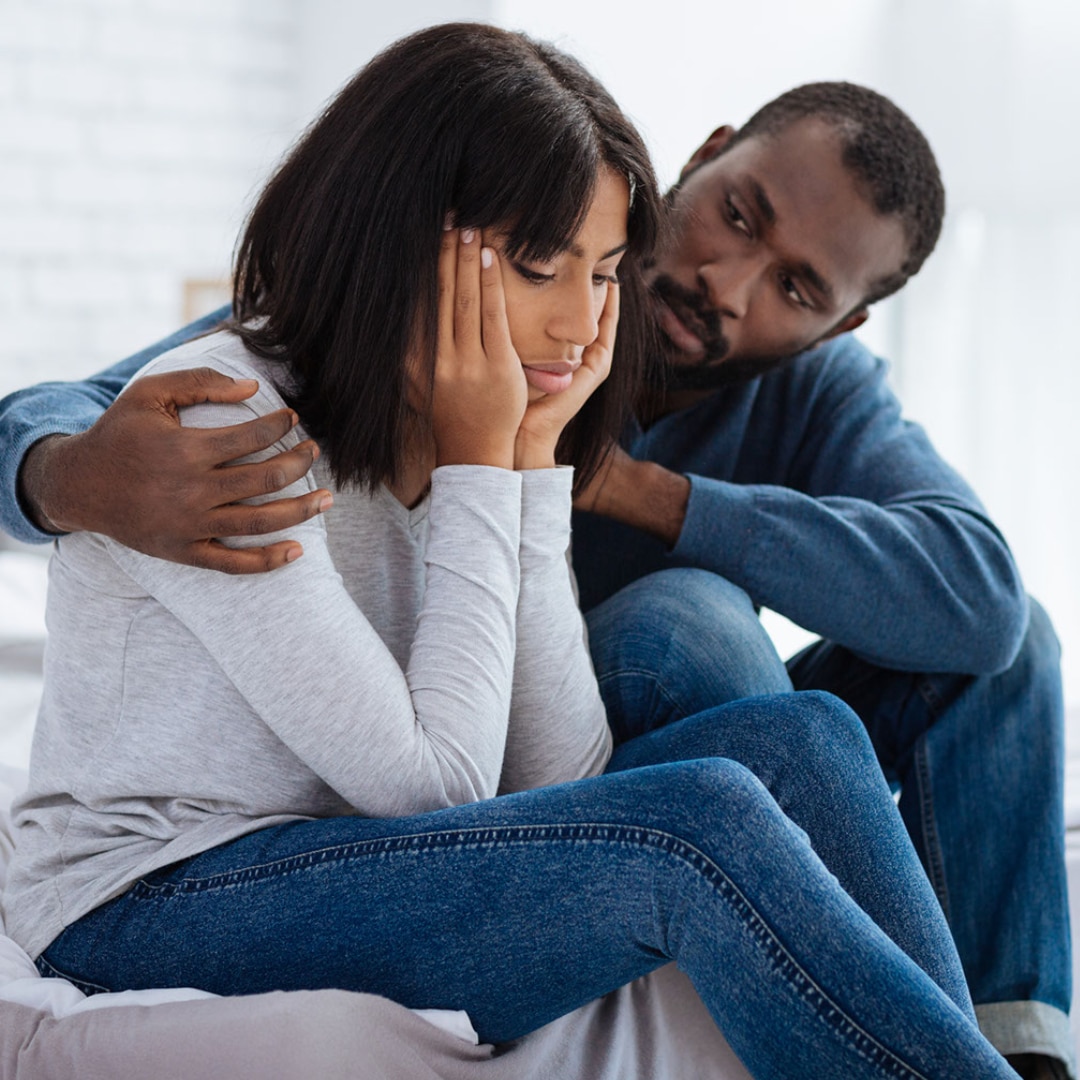
Online grief counseling can help you heal the emptiness and come to terms with the death of a parent.
The grief of losing a parent
When a parent dies, the grief can be overwhelming. The death of a parent can leave you feeling lost and alone. You may experience physical and emotional symptoms that are difficult to manage.
Sadness, anger, anxiety, and depression are common after the death of a parent. It's difficult to participate in daily events. Let yourself grieve in your own way and at your own pace. It can take a while to feel free to do things you enjoy. It takes time to find a place where you feel like yourself again.
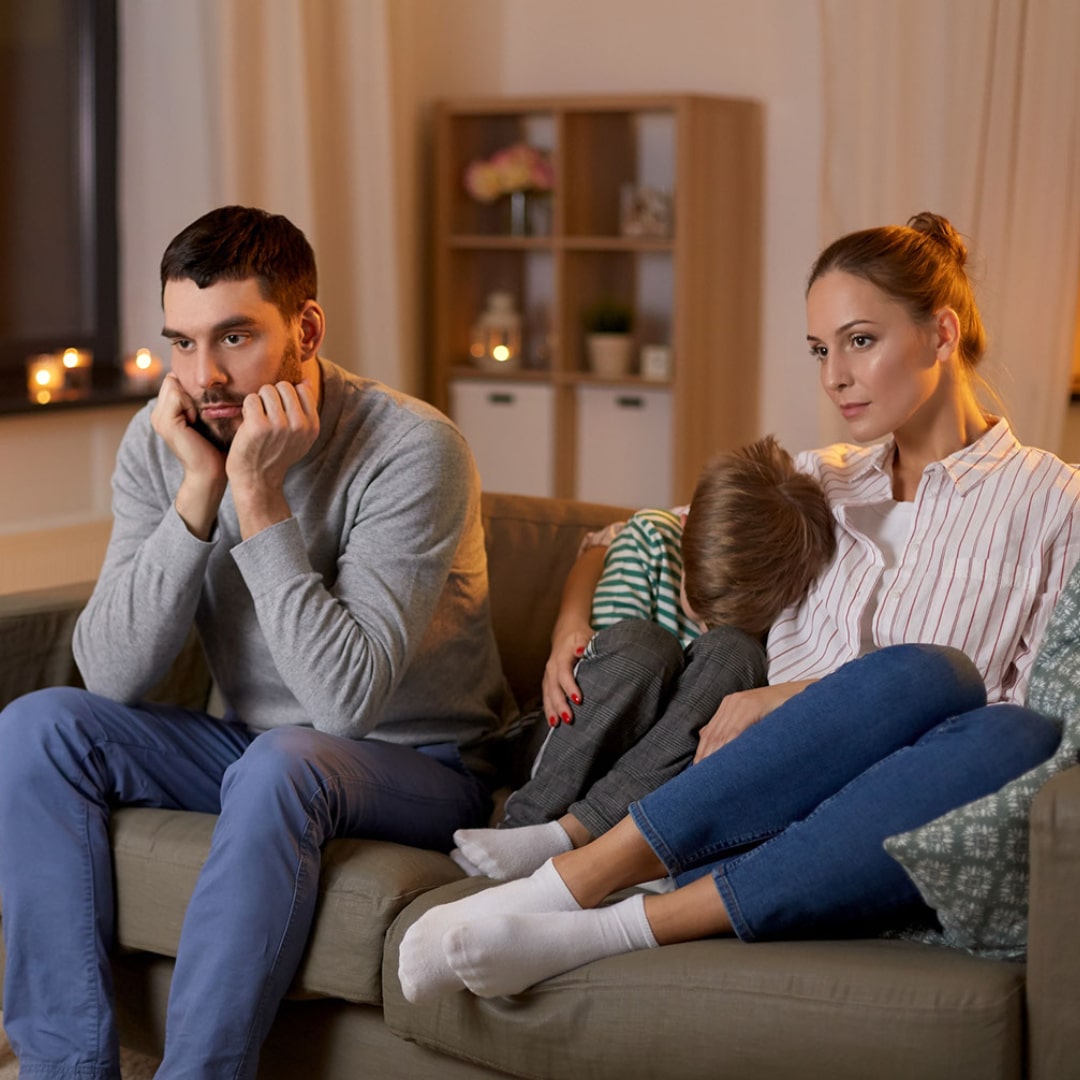
Family grief counseling can help you find peace after the loss of an elderly loved one.
Losing an elderly loved one
When your loved one begins to age, the thought of losing them becomes a reality your family faces. Even when you know it's coming, it's never an easy process. Each person in your family will cope in their own way. Some may have an incredibly difficult time coming to terms with their loved one no longer being with them. Other family members may see things differently and be at peace. You may have feelings of guilt, sadness, and emptiness that accompany the death of a senior. It is common to feel guilty for not visiting or calling more often. There may be things that you didn't have a chance to say. Finding peace can take time.

You can find healthy ways to cope with all the changes chronic illness brings into your life.
COPING WITH CHRONIC ILLNESS LOSS
It's common to experience a range of emotions with a new chronic illness diagnosis. It's natural to feel sadness, anger, fear, and overwhelm. There's so much to learn it can be challenging to know where to start.
Along with all the new medical issues come losses in functioning and the range of activities you can enjoy. It's important to find healthy ways to cope with all these changes.
You need to bring family and friends up to speed. Explaining what you're going through can be quite the challenge to put words to and painful to say out loud. However, sharing your story can help you feel less alone and more understood. It can help to take better care of yourself physically and emotionally.
Your upgraded care might include physical therapy exercises, relaxation techniques, and eating a more nutritious diet. Taking care of yourself will help you feel better equipped to handle the challenges of a chronic illness.
Grieving what you have lost to your chronic illness is an important step to moving forward. You are allowed to be angry, sad, and frustrated to have limitations. You will learn to live with your restrictions in time, and it won't seem like your whole life revolves around your diagnosis.It's important to be patient with yourself as you adjust.
Managing chronic illness losses can be challenging. So many appointments take time from your life. There seems to be time for little else but medical stuff. Learning about your diagnosis and how to look at life differently can prepare you to handle the challenges ahead.
LIVING THROUGH THE DECLINE OF
TERMINAL LILLNESS
Grieving your terminal illness is a different kind of loss. You are losing your future. You need a safe place to share your fears and sadness while you plan for the time you have and how you want to spend it. There are emotional and practical decisions to make.
Living with dying comes with many challenges. Coping with feelings of grief before death can be intense and overwhelming. It's a type of anticipatory grief. There can be a lot of uncertainty.
It is common to want to come to a place of peace as you move towards death. There may be relationships you want to reconcile and anger to work through. You may look at your life with new eyes as you accept what lies ahead. It can be comforting to celebrate your life as you come to terms with it coming to an end.
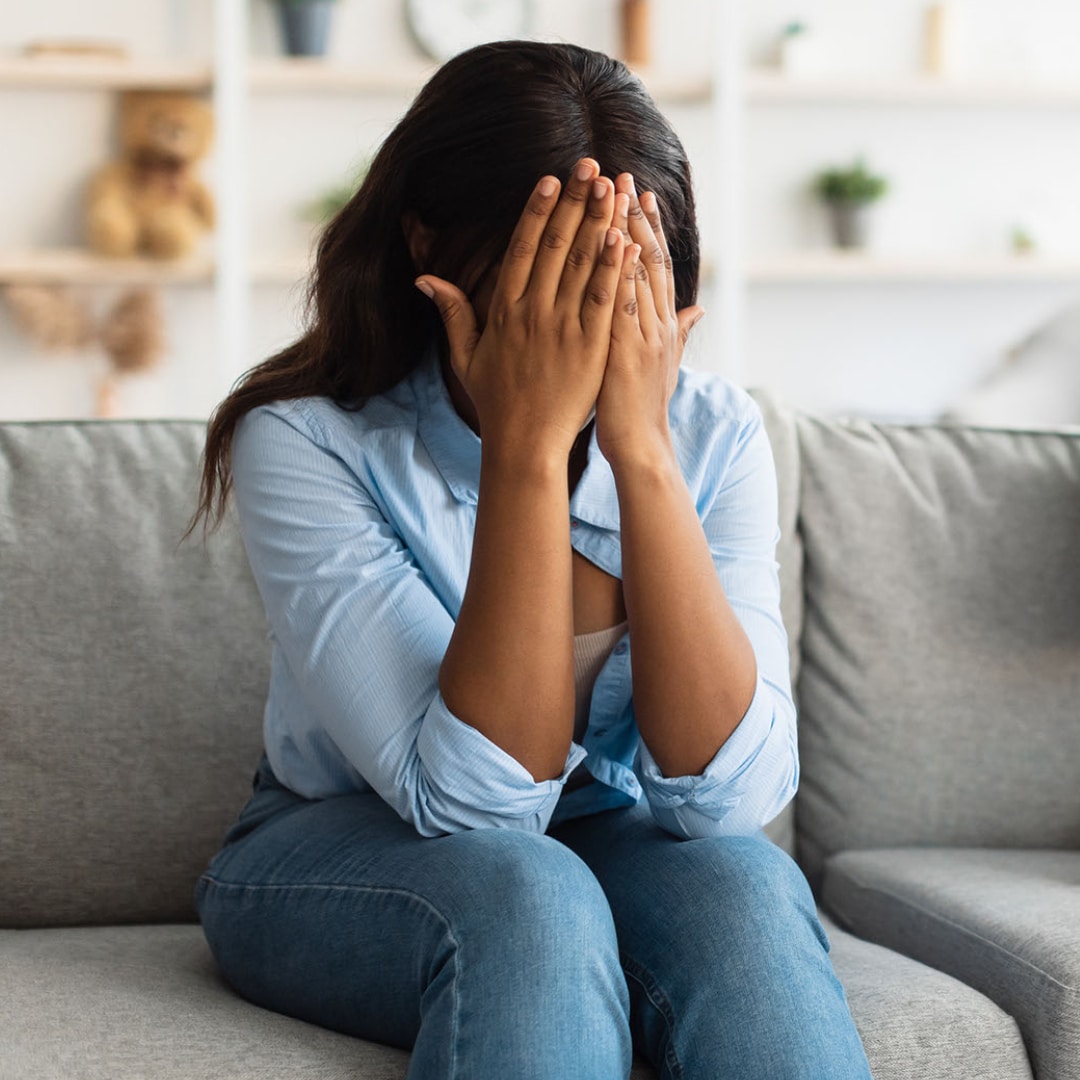
Divorce can leave you feeling empty and alone.
COPING WITH THE LOSS OF DIVORCE
Losing a loved one is always difficult, but the loss of divorce is a different kind of life disruption. The person you loved isn't gone, but they are no longer in your everyday life either. Your romantic relationship is over. If you have kids, your parental relationship will continue. This kind of loss requires a paradigm shift.
Just because your divorce is for the best doesn't mean it isn't sad. There is an empty space in your life. You need time to process your loss before moving on. Divorce is a major life change. Gather your support network to help you through lonely times. Nurture yourself as happy and sad memories cycle through your thoughts. Let the positive things shine through when they come up. It's okay to have these thoughts. There were some good times.
Types of Grief
Prolonged Grief Disorder
The 2022 revised version of the Diagnostic and Statistical Manual of Mental Disorders, Fifth Edition, Text Revision (DSM-5-TR) includes the new Prolonged Grief Disorder (PGD) diagnosis. The condition occurs when people have difficulty returning to their life after losing a loved one. A mental health professional can diagnose prolonged grief disorder if debilitating symptoms of the same level of intensity continue longer than a year. Symptoms include intrusive thoughts about the deceased, yearning or preoccupation with their loved one, avoiding reminders of the person they lost, and excessive sadness or guilt.
Experiencing separation distress to the extent that it interferes with daily life and responsibilities for most days of the month preceding the diagnosis is a qualifying factor. Other possible symptoms include:
• Identity issues
• Disbelief that their loved one is gone
• Confusion
• Intense emotional pain
• Difficulty interacting and engaging with others
• Difficulty participating in life
• Feeling emotionally numb
• Feeling life has no meaning
• Intense loneliness.
Birthdays, anniversaries, holidays, and other family events can be particularly difficult.
Exaggerated Grief
When a loved one dies, the natural reaction is grief. However, sometimes people experience grief to the extent that is far beyond what would be considered normal. This experience is known as exaggerated grief, and it can be very difficult for friends and family members to understand.
If you feel intensely overwhelming emotional reactions that worsen with time, you are probably experiencing exaggerated grief. Symptoms may include:
• Excessive grief reactions
• Nightmares
• New and abnormal fears
• Feeling worthless
• Self-destructive behaviors
• Suicidal thoughts
• Substance abuse
Mental health issues, including major psychiatric disorders
Complicated grief
Complicated grief (CG) is a serious, long-term condition that can arise due to a significant loss. CG can affect anyone, regardless of age, race, or culture. CG can interfere with daily life and cause great suffering. CG has been recognized as a mental health disorder by the American Psychiatric Association and is in the Diagnostic and Statistical Manual of Mental Disorders (DSM-5). Criteria for complicated grief include frequent and persistent thoughts about the deceased, including:
• Replaying the last conversation with your loved one.
• Being overwhelmed by memories of the deceased.
• Feeling an intense sense of loneliness and yearning for their presence.
• Having nightmares about the deceased.
Anticipatory grief
Most people think of grief as a reaction to a death, but another kind of grief can occur before a loved one dies. This type of grief is called anticipatory grief. It's is a feeling of sadness and loss that you experience when you know that someone you love will die. It can be very intense and can last for a long time. Some people feel like they are mourning even though the person they love is still alive. It is not unusual for people who are dying to feel anticipatory grief. Being sad about something that has yet to happen is normal.
The difference between anticipatory and normal grief is that sometimes it can make you feel like someone you love is dead or will die. Dying is not the same as being dead. There is still time left. It can be challenging to use that time the way you want to with the end present in your mind. Watching someone slip away from a terminal illness or very old age is different and can present unique circumstances to process and priorities to make. Common anticipatory grief reactions include:
• Sadness and guilt.
• Anger and frustration.
• Disappointment (Maybe you were hoping for a different outcome, or you feel that your loved one doesn't have the chance to do what they want to do before it's time to say goodbye).
• Difficulty making plans.
• Trouble staying in the present moment.
• Fear of what will come next.in
• Difficulty enjoying the time they have left.
Traumatic grief
When you hear about a death in the family, your first reaction is usually shock. You can't believe that this is happening to you. As the news sinks in, you may feel like you are in a fog, and everything is happening in slow motion. You may not be able to eat or sleep, and you may feel like you are going crazy. These are normal reactions to a traumatic event.
Traumatic grief is unique and can be caused by any type of traumatic loss, not just death. It has intense and prolonged symptoms that can make it difficult to function day-to-day. Some common symptoms include intrusive thoughts and memories about a person who died, ruminating about your loss, devastation, extreme sadness and loneliness, difficulty sleeping or eating, avoiding social situations, feelings of guilt or blame, and changes in mood or behavior.
Traumatic grief can be very debilitating and interfere with daily activities such as work or school. It can also interfere with relationships and social life. After a sudden or traumatic loss, grieving can make it challenging to practice basic self-care. It can be difficult to hold on to hope. Symptoms are similar to those of other types of grief, but they can be more intense and prolonged.
Disenfranchised grief
Grieving is often seen as a time-limited experience with an expected beginning and end. However, for many people, grief does not follow this neat timeline. For example, those who have lost a loved one to suicide may feel disenfranchised from the traditional grieving process. Their loss is often not recognized or acknowledged by society at large. Being dismissed can lead to feelings of isolation and alienation.
If you are mourning the loss of your pet, people might treat you as if you're over-exaggerating your feelings because you didn't lose a person. Even if others aren't openly judging your feelings, you may feel misunderstood.
Another example of disenfranchised grief is mourning the death of someone you didn't know personally. Disenfranchised grieving has become more common with the Black Lives Matter Movement. When a Black person dies because of racism and discrimination, it can be devastating to people across the nation who have never met them.
Witnessing police violence and the family's suffering in the media can cause a grief response. Friends and family members may not see your grieving as a legitimate response to the news. Others around you may not understand your emotional reaction if they are racially biased, under-educated, believe in stereotypes, or are blaming the victim for putting themself in a situation that caused their death. Whole communities can experience disenfranchised grief. It is common in marginalized populations.
Disenfranchised grief can have an impact on daily life. It can disrupt the natural flow of your day. It may be challenging to do simple things like checking and responding to an email. You can experience several different emotions that can cause you to stop what you're doing and think about the incident. You may also have difficulty focusing, paying attention, and remembering details.
Grieving is an all-encompassing experience. You may experience feelings of guilt, sadness, despair, and anger. It is also possible to have physical symptoms like headaches, nausea, and difficulty sleeping. You may also have behavioral symptoms like changes in appetite and isolation. Symptoms can become magnified when you don't get the support you need from family, friends, and your community. Psychotherapy can help you sort out your feelings and decide if you want to take any action.
Cumulative Grief
When a person experiences a series of traumatic events, the result can be cumulative grief. It can be complicated to cope with and challenging to manage. The preceding events may not seem connected, but they are often linked somehow. When awful things happen in succession, your trauma response multiplies. Several losses piled on top of each other can really overwhelm you. Your life might start to feel like a train wreck.
All the pain and overwhelm of multiple losses can lead to depression. The pain of losing a loved one can be too much to handle. The pain of losing two loved ones is almost unbearable. If you add on other types of losses like losing a friendship, a job, your car, or a valued memento, you could feel like you've come to your breaking point. When too many losses happen too fast, you don't have time to recover from one before the next one presents itself. It's common to feel like you can't go on.
Grief and depression can both be very isolating emotions, and it's easy to feel like you're the only one going through this. Grieving multiple losses at a time is a complicated and heavy burden. If you are dealing with cumulative grief, find a therapist or counselor to provide the professional support you need to get through this tough time.
Delayed Grief
When someone dies, we hear from so many people to "move on" and "don't dwell on the past." They unreasonably expect you to be happy and get on with your life without enough time to grieve. Delayed grief can result from being raised in an environment that discourages grieving. You can delay the grieving process yourself if you aren't comfortable or don't want to face the situation. Denial can trick your brain into believing the loss is not real.
No matter the reason, unresolved grief can come up later when you push through. Another tragic event or significant loss often brings on delayed grief. Some possible triggers are another death, divorce, or loss of a pet.
It is common to push through to take care of things that need to get done, plan a memorial, pack up belongings, take care of other family members and get finances in order. Once you check off everything on your list, grief can overwhelm you even when you thought you were handling it well. You were managing "business" well, but you were not attending to your own needs so you could get things done. Now, you're experiencing delayed grief. It's your time to process.
Delayed grief may find you without support. The rest of the mourners feel their grieving start to wane and can't understand why you're not on the same page. They may unknowingly say judgemental things that make your grieving process more difficult. You need support, and they don't know what to do or say. A professional therapist or counselor can help you and provide the support you need to find peace.
Chronic grief
Chronic grief lasts longer than six months and is often associated with trauma or an event that makes it difficult to cope. It is quite similar to complicated grief. Chronic grief is a form of prolonged grief that doesn't reduce in severity with the passage of time.
The experience can be isolating and painful. It can lead to physical and emotional health problems. There is no one right way to cope, but there are some helpful strategies that can make the process easier. Some strategies include:
• Talking about your feelings
• Staying connected to supportive people
• Finding ways to honor your loved one's memory
As the world grapples with the pandemic of Covid-19, many are mourning the loss of loved ones. For those who have recently lost a family member or friend to Covid, the experience can be especially difficult. The restriction on gathering disrupted the mourning process to protect vulnerable family members. Traditional mourning no longer provides comfort.
The disruption of the grieving process can make the unexpected loss of a loved one to Covid difficult to process. Restrictions and safety concerns have limited access to support resources. Virtual resources can take the place of some support resources, but nothing is like a hug from a loved one. You know it's not worth the cost to ignore the precautions, which can lead to guilt.
The stress of finding alternative solutions and resources can lead to anger and irritability when you just want to be free to mourn the way you have in the past. Virtual replacements may not offer the level of peace and comfort you need. You don't need a program. You need to connect.
You may find yourself entertaining thoughts of denying the pandemic so you can think about the kind of support and comfort you prefer. On the other hand, you may be having difficulty mourning in a world that just wants to move on from Covid and get back to life as usual. Online grief counseling can help you work through your conflicting thoughts and find a way to grieve that brings you peace of mind.

Healing from grief requires support. Supplement your online grief counseling by asking family and friends for help and company.
Self-care for grief
Grieving is an intense experience. The death of a loved one is brutal to process. It is essential to take care of yourself during the process. Be kind to yourself. Give yourself a break. There are self-care techniques that can help make the process a little bit smoother. Below are seven tips for self-care while grieving.
1. Allow yourself to feel your loss and all the emotions that come along. It's okay to feel out of sorts. Give yourself time to just be with it, even if it seems difficult. You don't always have to be productive.
2. Seek support from family and friends. Talk about your loss and how you're feeling. Discussions help you connect. When you connect with others, it can help you manage your painful emotions.
3. Take care of yourself physically. Get plenty of rest, eat healthy foods, stay hydrated and get up and move your body regularly.
4. Give yourself time to heal. Grieving takes time. Don't expect to be over your loss overnight. Don't let others convince you you're grieving wrong or for too long. It takes as long as it takes. Seek help from a therapist if you need some extra support.
5. Find time to do nice relaxing things for yourself. Many people find things like sitting or walking in nature, coloring, gardening, being near water, journaling, listening to music, and reading calming and nurturing.
6. Notice what is helping and make time for more of those things.
7. Professionals can help. See a counselor or therapist as needed. Getting professional help can often make all the difference in your healing process.

Grief and increased suicide risk
According to the Centers for Disease Control and Prevention (CDC), suicide rates in the United States have increased dramatically in recent years. The CDC attributes this increase to several factors, including grief and loss. Bereavement is a strong predictor of suicide risk. The risk of suicide is six times higher in the first year after a loved one dies than at any other time.
Many people who lose a loved one struggle with intense feelings that come up in the grieving process. Feelings can be very overwhelming and lead to thoughts of suicide. Suicidal thoughts are normal. They become a problem if you feel you may take actions to act on them. If you are experiencing suicidal thoughts following the death of a loved one, please seek professional support. If you are formulating a plan, seek help immediately. There are many resources available. There is no shame in seeking help.
If you are experiencing suicidal thoughts, there is help available. A professional online grief counselor can provide you with support to help you through your grieving process.

Many types of loss can lead to grief. Medical complications can cause grief from the loss of abilities. Online grief counseling for medical issues can help you cope.
Types of Loss
Many factors can start the grieving process. You may experience the the death of a loved one, the loss of a pet, a divorce, the loss of a job, or any other type of impactful loss. Some common causes of grief include the death of a loved one, a breakup or divorce, and the loss of a job. Other causes can include serious illness or injury, the death or loss of a pet, and moving away from home.
The experience of loss is universal. Grieving is the natural response to loss. People experience loss in different ways depending on the type of loss. There are several types of loss beyond the loss of a loved one. The most common are illness, loss of abilities, divorce, job loss, moving, and pet loss. Each can be a positive or a negative experience or a mix of both, depending on the individual. There is no right or wrong way to experience any kind of loss. Like any other human emotion, such as love and attachment, grieving is a unique, individual experience.
Chronic illness, sudden diagnosis, or serious injury can be another type of devastating loss. A change in health can make you feel lost and helpless. There are so many unknowns. You may have lost the ability to do things you want to do. Grieving may impair your cognitive function. It is common to experience changes in your energy level. All these changes can make you feel overwhelmed and alone and question your place in the world. It is difficult to make a mindset shift to see where you fit in and how you can contribute.
Another type of loss that can be particularly difficult to cope with is divorce. It can feel like a personal failure and cause great upheaval in one's life. Marriages can be difficult to leave. However, many couples who divorce do so for good reasons, but knowing it's for the best doesn't mean it will be easy to move forward. It can be tricky to manage, and you may need extra support to make the transition.
Job loss is another type of loss that can be very traumatic. It can shatter your sense of security and identity. Losing your job can make you question what you're doing with your life. It may seem like the end of the world, but it could be an amazing opportunity. You can find a way to move forward and find new challenges and a satisfying career.
Moving can also be a taxing experience, especially if it is involuntary.
In addition to the stress of relocating to a new place, being forced to move caused several losses. You leave behind so much. You have to deal with the loss of your home, community, and support network.
Coping With Loss
Coping with the death of a loved one is never easy. Grieving can be complicated to manage. There are many ways to cope with the loss of your loved one. You may find comfort in talking about them with friends and family members. Writing down your thoughts and feelings may be helpful. Providing support for others who share your loss can bring you some comfort.
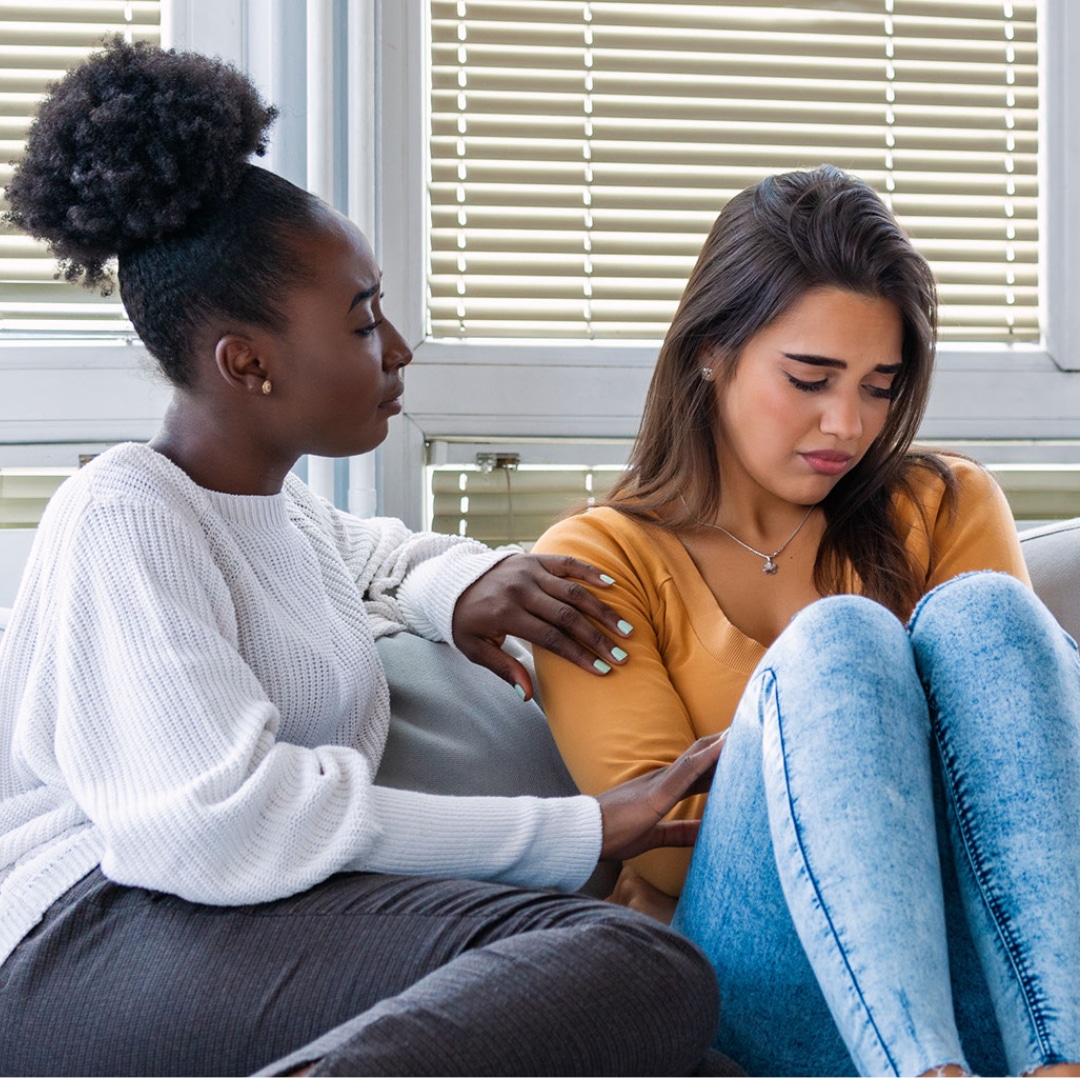
Support from family and friends provides comfort when you’re grieving between grief counseling California.
Coping with loss is easier with several different kinds of support.
You may choose to participate in a social support group, peer support program, or psychotherapy.
Online grief counseling can help you cope with the death of your loved one when support from family and friends just isn't enough. It is essential to find what works best for you and allow yourself time to grieve. Grieving doesn't have a set process or timetable.
No matter what type of loss you are experiencing, your grieving process can include feeling overwhelmed, having difficulties with organization, feeling isolated, and having trouble sleeping. You can experience physical symptoms such as fatigue, headaches, tightness in your chest, or nausea. Your emotions can be all over the place, feeling lost, overwhelmed, guilty, angry, depressed, or anxious. You need emotional support.
Your support network can include family, friends, a professional counselor, a community support organization or nonprofit support program, support group meetings, social media groups, online forums, and pets.
Many organizations offer paid and free social and peer support meetings and other resources for grieving people. Some for-profit organizations require a completed questionnaire or survey and membership to access support meetings. Many religious organizations provide grief support based on their beliefs. A secular grief counselor can offer support without religious doctrines attached.
There are several kinds of groups and meetings for different types of loss. Sometimes support meetings focused on one population can be more comforting, and sometimes people prefer general grief support meetings. Social media groups can be effective for networking with others going through a similar variety of symptoms. Social media groups offer a place to anonymously discuss concerns, problems, and questions. Some people use online social media for support and to share their stories, memories, and photos.
You can meet with a therapist virtually, so you don't have to leave your home when it might be difficult or even unsafe to drive. Some support group meetings meet online as well. When you are grieving, support is essential. You are human and will experience a wide range of normal feelings during the grieving process. Asking for support is not a sign of weakness. You need support to heal. Asking for support shows strength.

Take time for yourself to rest, recharge and find some peace as you process your emotions with your grief counselor online.
Coping with loss takes time.
Grieving is difficult. Recovery takes time. It is important to remember that there is no right or wrong way to grieve, and it is not only okay but essential to take time for yourself. If you are experiencing debilitating symptoms after a significant loss or traumatic event, reach out for help and support.
Coping with the death of a loved one is one of the most difficult things you can go through. It takes time to heal from the emotional pain. There is no right or wrong way to go through the grieving process. There are no rules for how long it will take to get over the death of a loved one. Time will pass, and eventually, you will find a way to cope and put your life together.
Plan to take it easy for a while. After all the arrangements have been made, and the urgent tasks are completed, it's common to find yourself exhausted and stressed on top of your sadness. You may feel like you don't have the strength to do anything. It's essential to recognize your needs and take care of them. Schedule some downtime to take it easy for a while and allow yourself time to heal. Slowly ease yourself back to your regular everyday life. If you're feeling down and depressed, get some help from a professional counselor or therapist.

An online grief therapy can provide the support you need to process your grieving experience and find peace.
Coping with loss with support from a grief therapist.
Online grief counseling can provide you with support, guidance, and resources to process your loss. You can find a way to treasure memories and heal your heart.
A licensed mental health professional specializing in grief and loss can help you cope with your loss, find peace, and live your life. Licensed counselors have special training and experience to support you in an effective and therapeutic way family and friends cannot. They provide professional services to support you as you heal. A mental health professional can help you figure out your place in the world, find purpose and get you back to having social interactions. If you would like to avoid religious beliefs surrounding loss, a secular grief counselor may be a good fit.
Psychotherapy is more therapeutic than a friendly chat. Therapy helps support your mental health. Virtual sessions can make it easier to connect with a professional to get the support you need. Therapists and counselors are trained to meet your needs, identify your strengths and help you find solutions. They can help you work through difficult emotions.
Your counselor can support you if you are grieving alone. They can help you find peace and hope where you thought there was none. You can meet online in the comfort of your own home and access effective and caring therapy. Teletherapy provides the same level of support as in-office sessions. It can make it easier to get the help you need to stabilize your mental health.
